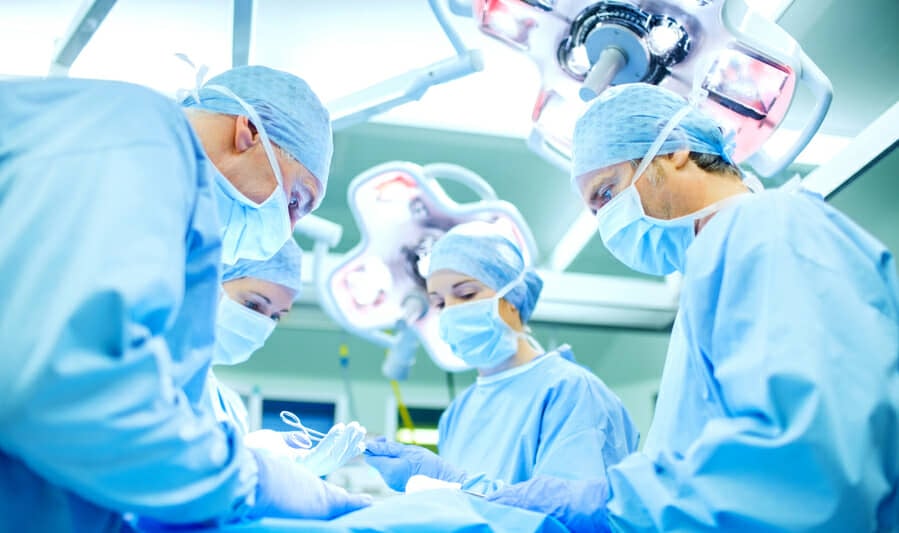
Several questions have come in recently regarding some of the recommendations I’ve made and how someone could follow those once they’ve had permanent changes made to their body. Here are a few examples and hopefully some helpful ideas.
Ileocecal Valve—Gone
How do I control my regularity if I’ve had my ileocecal valve removed during colon surgery?
The ileocecal valve plays a couple of important functions. Like the appendix, if it has been removed there are a few ways you can help your body compensate.
This valve helps regulate the flow of food material from the small intestine into the large intestine. By the time the material reaches this point, most of the nutrients and beneficial components have been removed. The remainder consists of fiber (which helps feed the beneficial bacteria in the colon), water, and waste material. The ileocecal valve keeps this material from backing up and returning to the small intestine.
Next to the ileocecal valve is the appendix and a concentration of lymph tissue. The appendix acts as a reservoir of healthy bacteria, and works with the ileocecal valve to help neutralize toxins.
If your ileocecal valve (or your appendix) has been removed, your body is at somewhat of a disadvantage. You might notice more problems with diarrhea, constipation, and symptoms associated with bowel toxicity (headaches, flu-like symptoms, achiness, fatigue, etc.) You can minimize these effects by:
- drinking plenty of water;
- regularly consuming foods and supplements that are considered pre- and probiotics, which include fermented foods like sauerkraut, yogurt, and kefir (which can now be found in the dairy section of many local supermarkets), or a high-quality probiotic supplement;
- including lots of roughage and fiber in your diet to promote movement through the intestinal tract; and
- If you routinely suffer from diarrhea or constipation, it often helps to massage the area where the small intestine meets the large intestine. Although the ileocecal valve and/or appendix might be missing, that area will generally still contain a large amount of lymph tissue—and massage will help improve circulation and drainage of the area. Also massaging the various “neurolymphatic” and “neurovascular” points associated with the colon and ileocecal valve will help improve circulation and detoxification of the area.
Lymph Glands—Gone
How do I get my lymph flow restored if I’ve had glands removed during mastectomy or lumpectomy?
Again, the lymph system is very extensive and it would be difficult, if not impossible, to completely remove all of the lymph system surgically. Generally it’s only the lymph nodes that are removed during surgery. The remaining lymph vessels can still help with drainage in an area.
This can best be accomplished through exercise. The primary “pump” of the lymph system is muscle contraction. Exercising the muscles in the area where the lymph glands and tissue were removed will improve lymph flow in the area. Also, a massage therapist who understands lymph flow direction can often do wonders.
You might also consider an inversion unit. This is a device that allows you to safely hang upside down by your ankles. Doing this for 5 to 15 minutes a day helps reverse the effects of gravity and improve overall circulation and fluid movement. Making a “slant board” (a wide platform slightly elevated at one end) and lying with your feed higher than your head will give you a similar effect without the expense of purchasing any equipment. I routinely use an inversion unit myself.
Rebounding is another exercise to improve lymph flow.
Also, if lymph tissue has been removed in the breast area I would suggest not sleeping in restrictive clothing such as a bra. Studies have shown this restriction will impede circulation and the removal of toxins by the lymphatic system.
On the other hand, if the lower extremities have been stripped of lymph tissue, it may be necessary to utilize support hose, stockings, or socks to avoid fluid retention in the feet and lower legs.
And don’t forget to drink plenty of water. Adding a little bit of fresh lemon or lime juice to the water seems to help flush the lymph system.
Thyroid Function—Gone
How do I support my thyroid function after ablation?
When you remove a gland like the thyroid, or destroy its function through ablation, your options are limited.
Typically, if a gland is still intact but not functioning properly we want to provide the body with the proper building blocks (glandulars and/or protomorphogens) and raw materials needed to rebuild the gland and allow it to function properly. And when various glands produce some of the same hormones, sometimes even if one gland is removed others can increase their production of the hormone and take up the slack. For example, if the ovaries are removed or no longer produce estrogen due to menopause, your adrenal glands produce a hormone that is converted to estrogen. Unfortunately, that’s not the case with the thyroid gland.
Only the thyroid produces thyroid hormones, and once it has been removed your only viable option is to take thyroid hormones for the rest of your life. The trick in this case is to properly balance the different thyroid hormones. This is best accomplished with the help of a doctor experienced in these matters and one who understands the importance and safety of using natural extracts of thyroid gland such as Armour Thyroid, Naturethroid, Westhroid, and others derived from the thyroid glands of pigs and not synthetic forms of the hormone like those marketed under names like Synthroid, Levothroid, levothyroxine, Cytomel, etc. The natural products contain the thyroid hormones T1, T2, T3, and T4, plus other components that most closely resemble human thyroid hormones, whereas the synthetic products contain only T3 or T4. Under ideal circumstances the body can convert T4 into the various forms, but in many people this doesn’t occur.
Hormones from the thyroid gland play a critical role in your health and longevity. They influence everything from your metabolic rate and the aging process to your ability to function mentally and maintain a strong immune system. If I had my thyroid removed, I certainly wouldn’t be satisfied with a doctor giving me a prescription for a synthetic thyroid tablet and hoping everything was being taken care of. You shouldn’t either. Find someone who specializes in the area and take the time and effort to get it right. The quality and length of your life depend on it.
You May Also Like:
How to Manipulate Your Ileocecal Valve for Better Health
Jennifer's Story: Hormone Havoc Resulting in a Lifetime of Needless Thyroid Dysfunction


